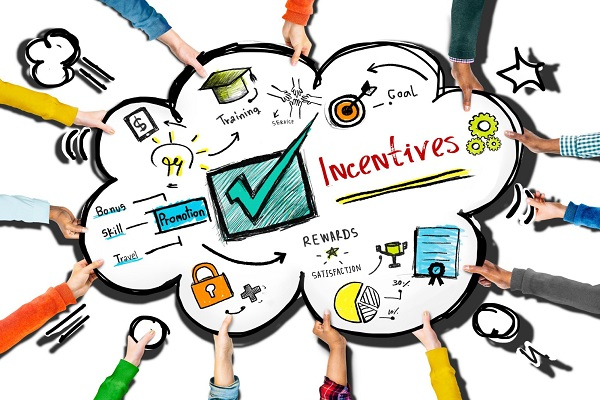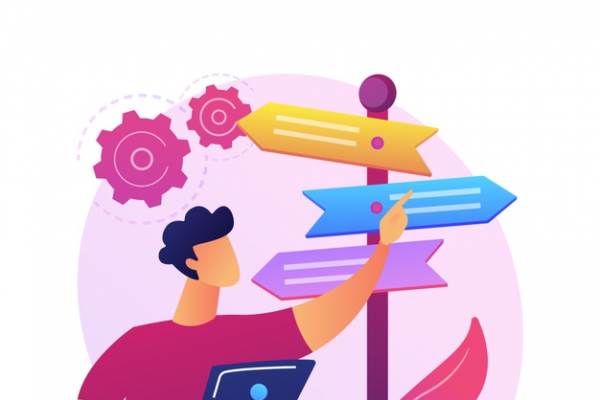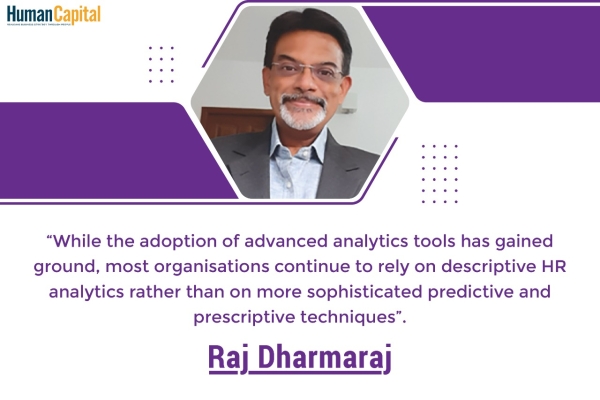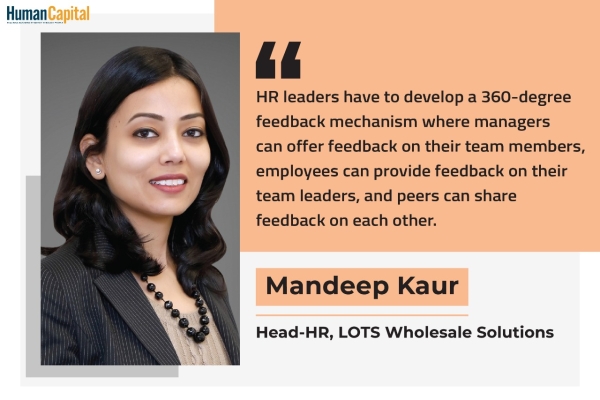Reward strategies must evolve to meet the challenges of the future of work.
Rewards practitioners across organisations are entrusted with attracting, motivating, and retaining talent while ensuring that their diverse workforce is treated in a fair and ethical way. Reward strategies must evolve to meet the challenges of the future of work. Work areas in companies today have changed phenomenally, especially in the context of the post-pandemic situation. Therefore, it has become essential for us as the human resources team to make sure we do the best we can for our employees and, at the same time, manage our people strategy in a meaningful way.
Total rewards strategy consists of four elements: compensation, benefits, development and environment. We have seen a strong focus on compensation since early on. However, over the last few years and especially in the previous 18 months, employees want a greater emphasis on benefits, development and environment. These three areas are gaining much traction apart from compensation, as people now understand the importance of health, work-life integration, the content of the role, flexibility and learning opportunities.
Compensation
Compensation focuses on market competitiveness, skill-based remuneration, job architecture, and the right pay for the right job. It includes a fixed base salary, variable pay, performance-linked incentives (short term or long term), and other flexible compensation programs.
Benefits
Benefits (whether short term or long term) cover a wide range, including annual leaves, medical insurance, life and disability benefits, and social security benefits.
It is imperative to look at various policies from the “care” and “responsibility” standpoints. These can be at a country level or a global level. Multiple organisations that have demonstrated “care” as an element during this challenging time have seen positive feedback from their employees. Additionally, their employee engagement scores have improved.
Environment
The environment, in some ways, is linked to how an employee feels within the organisation, in terms of recognition culture, wellbeing policies, flexible work arrangements, etc., which leads to enhancement in diversity, equity, and inclusion.
Development
Development is another important aspect for any employee in terms of role enhancements, movements across functions or even geographies, and, therefore, the mobility that the employee gets through different roles across countries. The roles offered to employees at the start of their career, in the middle, and towards the latter part of their career journey all hold their unique importance. Leadership programs and associated learnings through the different roles that an employee holds are extremely valuable.
Need For a “Responsible Employer”
When it comes to benefits, responsibility is essential across all employee groups, whether white-collar or blue-collar. The concept of a “living wage,” which ensures that companies pay not only the minimum wages defined at the country level by the government but a decent wage that can cater to employees’ health, education and housing standards, is picking up momentum globally. Many responsible employers are working toward ensuring a living wage for their employees, thereby reducing the gaps at a social level between different strata of society at large.
Flexibility – A Must
We all need flexibility in our personal and professional lives. Therefore, when it comes to employee flexibility, organisations are enhancing their focus on integrating work and life better. Research proves that flexible ways of working improve productivity and reduce the stress of employees. Hybrid working is popular among employees, and as “responsible employers,” we must ensure that we can provide the flexibility they desire.
Wellbeing – An Absolute Essential
Wellbeing across all its dimensions (physical, mental, social and emotional) has gained much steam over the past few years. However, in today’s context, we must invest heavily in mental wellbeing for the betterment of employees. Various kinds of mental well-being-related programs and Employee Assistance Programs (EAPs) have been found to be quite effective.
Recognition – An Imperative
Recognition holds an important place when it comes to the environment element of total rewards, especially when people are working remotely or in a hybrid mode where face-to-face interactions are limited. According to the findings of an SHRM research paper, employees with integrated recognition in their culture are 4x more likely to report high inclusion sentiment. Recognition helps drive inclusiveness within companies and ultimately promotes diversity, equity and inclusion at large.
Sustainability & Technology – A Precondition to Any Program
All programs must be designed with a focus on sustainability and technology. We can only scale up a program with the support of technology at the backend. Thus, the program design needs to look at sustainability in totality.
Communication is Key
Along with holistic rewards, there needs to be a massive focus on communication. Open, transparent, authentic, and targeted communication by leadership helps build a trusting relationship for employees. It also adds to enhancing employee engagement.
Trust, Empowerment, and Purpose
Beyond holistic rewards practices and communication, an important aspect is building a culture of trust and empowerment. Employees need to feel a connection with the employer and the purpose for which they work. If a company can define a meaningful purpose for any individual, it will be extremely beneficial in the long run, both for the employee and the employer.
Conclusion
Holistic rewards combined with enhanced communication and a positive culture can drastically strengthen employees’ emotional and rational commitment to the organisation, resulting in heightened employee engagement, further driving productivity. Along with these strategies, understanding the workforce, the new workplace, and providing flexibility, care, meaningful work, trust, and empowerment backed up by robust communication are the needs of the hour and for the post-pandemic era. Hence, all of the aforementioned elements must be integrated to attract and retain employees in this ever-changing future of work.

Is your organisation post-COVID-ready?
Trending
-
SBI General Insurance Launches Digital Health Campaign
-
CredR Rolls Out 'Life Happens' Leave For Its Employees
-
Meesho Announces 30-Week Gender-Neutral Parental Leave Policy
-
Microsoft Unveils Tech Resilience Curriculum To Foster An Inclusive Future
-
60% Indian Professionals Looking For Job Change Due To COVID: Survey
-
SpringPeople And Siemens Collaborate For Digital Transformation Push
-
86% Professionals Believe Hybrid Work Is Essential For Work Life Balance: Report
-
Almost 1 In Every 3 People's Personal Life Affected Due To Work Stress
-
Meesho Rolls Out Reset And Recharge Policy For Employees
-
80% Of Talent Leaders & Academics Say Pandemic Changed Skill Needs For Youth: Report
-
Hero Electric Rolls Out 'Hero Care' Program For Employees
-
Human Capital In Collaboration With ASSOCHAM Hosts Virtual Conference
-
IKEA India, Tata STRIVE Collaborate To Create Employability And Entrepreneurship Opportunities
-
SAP India, Microsoft Launch Tech Skilling Program for Young Women
-
DXC Technology, NASSCOM Collaborate For Employability Skills Program
-
Lenskart To Hire Over 2000 Employees Across India By 2022
-
Mindtree Launches Learn-and-Earn Program
-
Tata AIA Extends 'Raksha Ka Teeka' To Its Employees
-
Swadesh Behera Is The New CPO Of Titan
-
NetConnect Global Plans To Recruit 5000 Tech Professionals In India
-
Hubhopper Plans To Hire 60% Of Indian Podcasters By 2022
-
Corporate India Needs More Women In Leadership Roles: Report
-
Aon to Invest $30 Million and Create 10,000 Apprenticeships by 2030
-
Tech Mahindra Launches ‘Gift a Career’ Initiative for Upskilling of Youth
-
40% Women Prefer Flexible Working Options in Post-COVID World: Survey
-
3 out of 4 companies believe they can effectively hire employees virtually: Report
-
Vodafone , CGI and NASSCOM Foundation launch digital skills platform
-
Odisha: Bank, postal employees to deliver cash for elderly, differently-abled persons
-
Skill India launches AI-based digital platform for "Skilled Workforce"
-
Hiring activity declines 6.73% in first quarter: Survey
-
70% startups impacted by COVID-19 pandemic
-
Bajaj Allianz Life ropes in Santanu Banerjee as CHRO
-
Over 70 Percent MSMEs look at cutting jobs to sustain businesses
-
93 Per Cent employees stressed about returning to office post-lockdown
-
Johnson & Johnson India announces family benefits for same gender partners
-
Indian firms turning friendly towards working mothers
-
Welspun India names Rajendra Mehta as new CHRO
-
Wipro partners with NASSCOM to launch Future Skills platform



Human Capital is niche media organisation for HR and Corporate. Our aim is to create an outstanding user experience for all our clients, readers, employers and employees through inspiring, industry-leading content pieces in the form of case studies, analysis, expert reports, authored articles and blogs. We cover topics such as talent acquisition, learning and development, diversity and inclusion, leadership, compensation, recruitment and many more.
Subscribe Now












































Comment